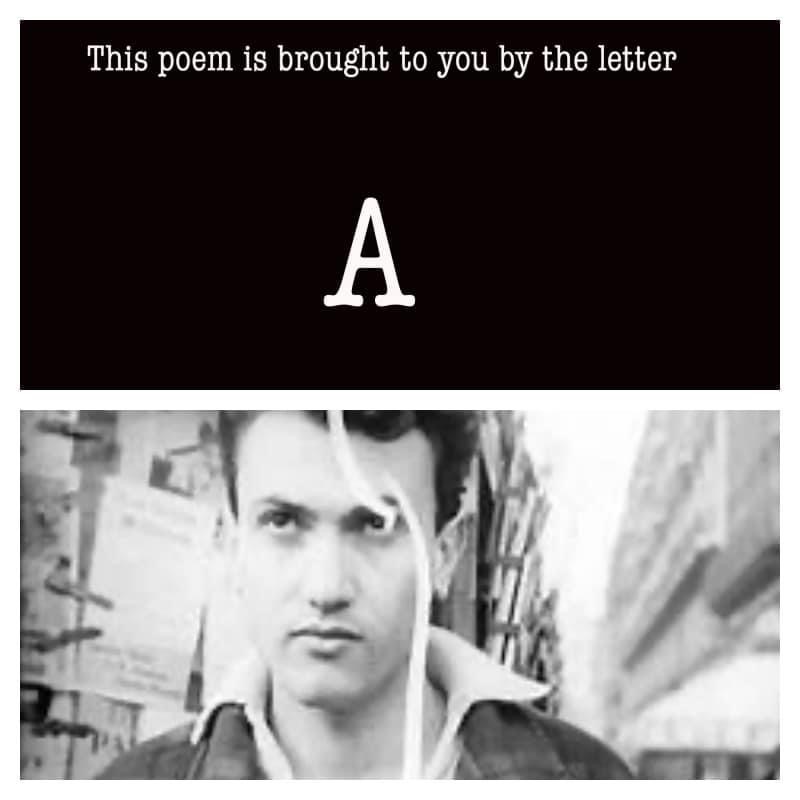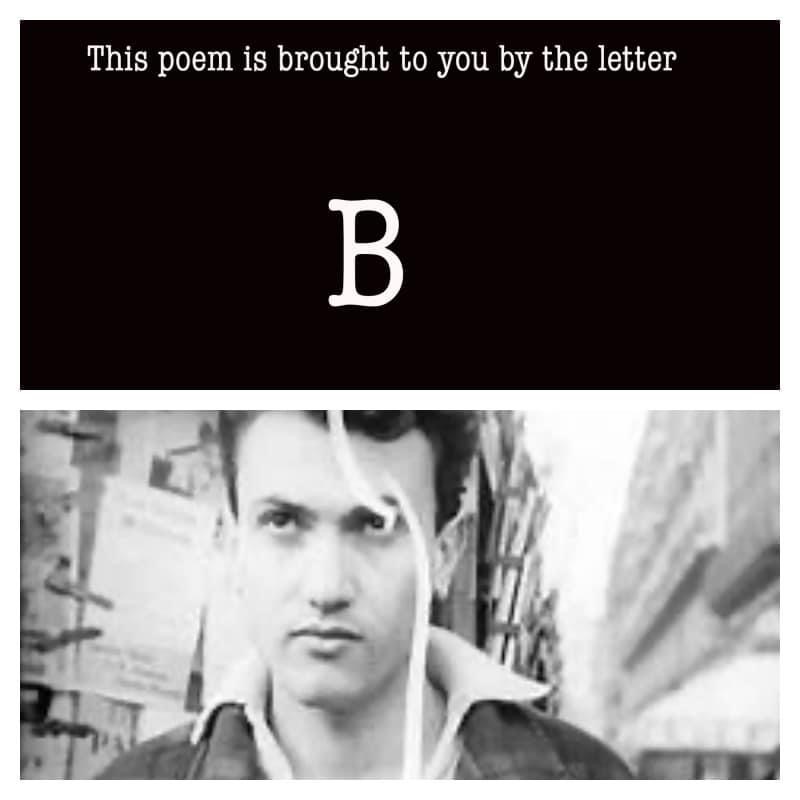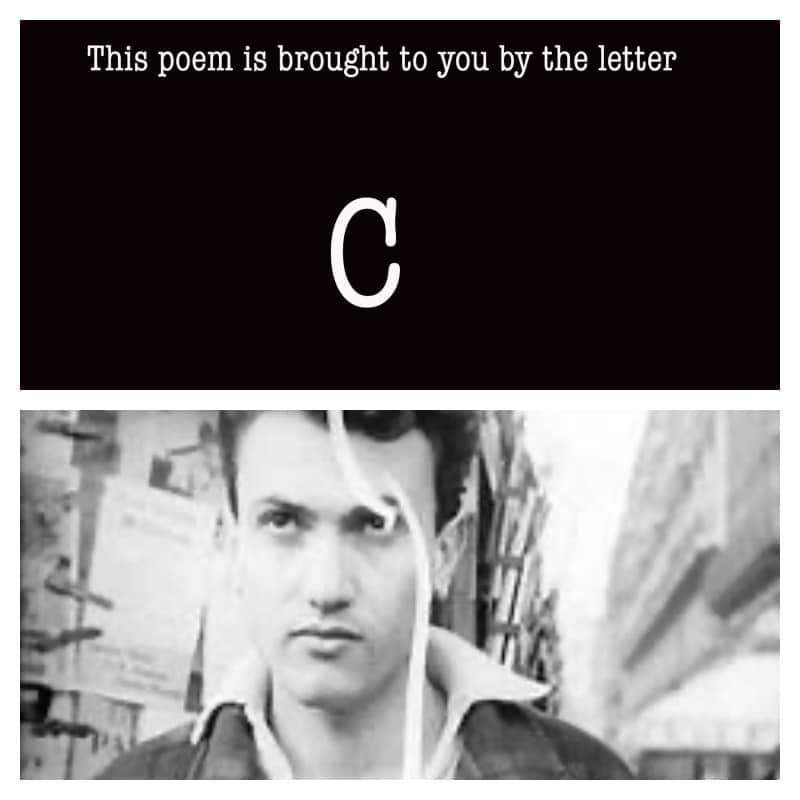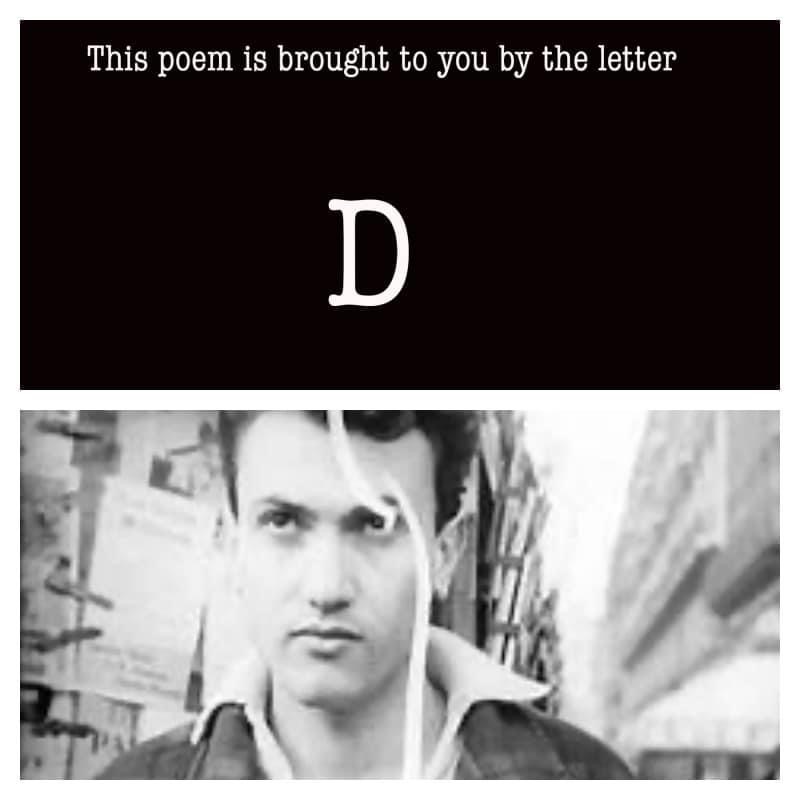





he was a scorpion sting away from a desert metanoia Night rain on Windsor Avenue sycamore trees awash in their own perfume the others haven't arrived, the silver maple waits with me he doesn't think they'll put snow fences up this year the tough knots of self-entanglement the dog has found his spot contemplating the potential lethality of today's activities football fields where I put my dinosaurs down for naps teaching me to pronounce Demosthenes say, Ethiopia, three times... I've been doing it all day! Don Juan's Reckless Daughter's here, and we get wine delivered to the front door pale green kitchen archive of shuffling slippers across the linoleum floor joining the general fate of all five-hour bus riders
Refuge my words are my refuge; a place where I can build havens and monuments that are both mobile and stabilizing. time is impermanent; each syllable constitutes a tertiary universe independent of lack, yet significant. my refuge is open; sourced from a sacred space beyond the Gaelic imaginary.

My Turtkul!
Independence! What a beautiful line of words! At its core lies a world of meanings and freedom. There is no greater happiness in the world than the freedom of an individual, a society, a nation. After the years of independence, many cities were built, parks, buildings and facilities were built, as well as many schools, buildings and dormitories for higher educational institutions. It is not an exaggeration to say that Uzbekistan has changed beyond recognition and has made progress.
In recent years, Tortkol district has developed like other districts and cities.
The lands of our Tortkol district lie on the shores of Amudarya. We have a very beautiful, poetic nature, kind and friendly people. These farmers of the old land have come down to the language of the country with their selfless work since time immemorial.
20,000 hectares of land in Tortkol district are cultivated. Now this indicator is increasing day by day.
Tortkol districts differed from other districts with their own characteristics. In particular, the hard work of the residents of this district, the equal love of books by young and old people, especially the fact that there are more poets in Tortkol district than in other districts, is recognized by the whole of Uzbekistan.
Tortkol district is the first capital of Karakalpakstan, scientists who spread fame to the world, most of the achievements in literature and art, culture and sports are also in Tortkol district.
The people of Uzbekistan have great respect and love for Tortkol district. Because Tortkol district has achieved a lot like its active young people.
Our district was established on July 3, 1927, and has been widely known not only in Uzbekistan and the world for almost a century.
In our district there are more than 22 mahalla citizens’ meetings, more than 15 village citizens’ meetings.
The achievements of our district are many. For example, six of our veterans who took part in the Second World War, 4 of our venerable mothers and fathers who are over 100 years old live in our district. About three hundred of our veterans working behind the front live.
This, of course, awakens special feelings of pride in our hearts.
Tortkol District Governor Rustam Shamuratov, Tortkol District Authority and citizens of Tortkol District have an incomparable role in the achievements of Tortkol District, which is such a beautiful country, loved and honored by such a country.
The mayor of Tortkol district R. Shamuratov has also contributed to the development of Tortkol district in recent years. In recent years, roads have been paved, new kindergartens have been opened, various confectionery brands, facilities have been built, and their role is incomparable in the fact that attention is being paid to the education of young people.
Abdulla Oripov, the national poet of Uzbekistan, the beloved poet of the hero of Uzbekistan, said about Tortkol district:
– Every time I went to Karakalpak land, which is like an endless desert, I was fascinated by its beautiful nature and I was satisfied with the hospitality of my aunt’s children. My visits to ancient and modern Tortkol were no exception. It is not an exaggeration to say that I wish Tortkol to become the pride of this country. In fact, it is not an exaggeration to say that the hospitality of our people and the beautiful nature of Tortkol surprised all our poets and writers teachers. Yusupov (People’s Poet of Uzbekistan and Karakalpakstan, Hero of Uzbekistan) Tolepbergen Kayipbergenov (People’s Poet of Uzbekistan and Karakalpakstan, Hero of Uzbekistan) Sirojiddin Syed (First Deputy Chairman of the Writers’ Union of Uzbekistan) also expressed very warm opinions.
We are proud to be the children of the Tortkol nation with such a bright future and a history of almost a century.
Oghiloy Aminova was born in Tortkol district of the Republic of Karakalpakstan. Member of the Writers’ Union of Argentina. Holder of the International Order of “Friendship”.
Baggage
He thinks
He can handle
Her baggage,
With time
He’ll understand
How wrong
He’s been.
Taylor Dibbert is a writer, journalist, and poet in Washington, DC. “Rescue Dog,” his fifth book, was published in May.